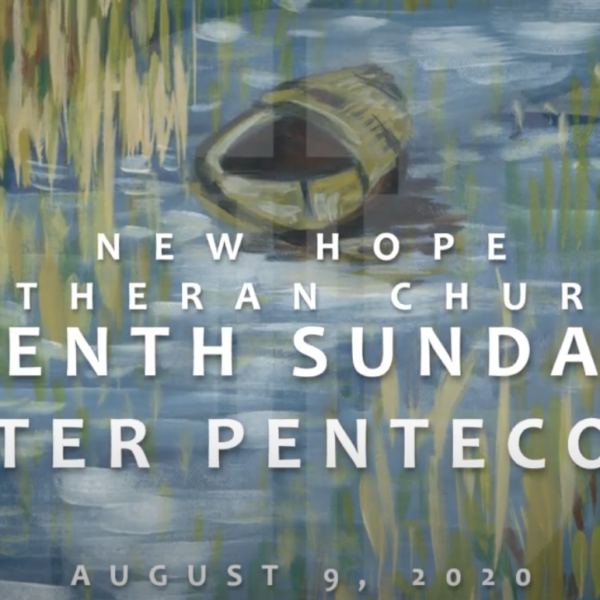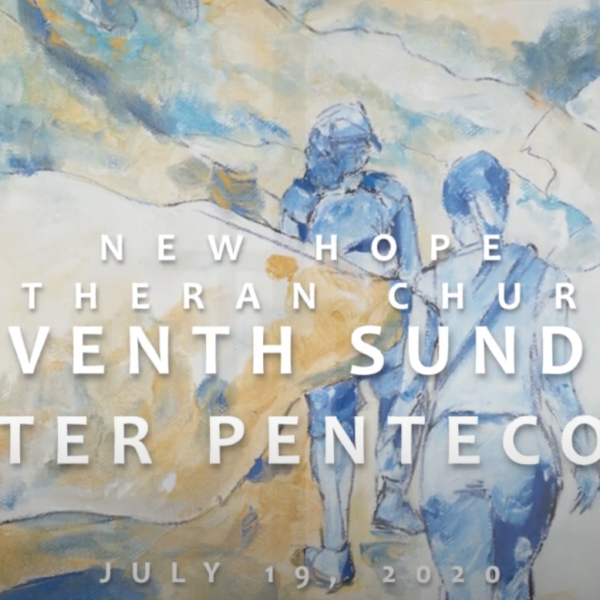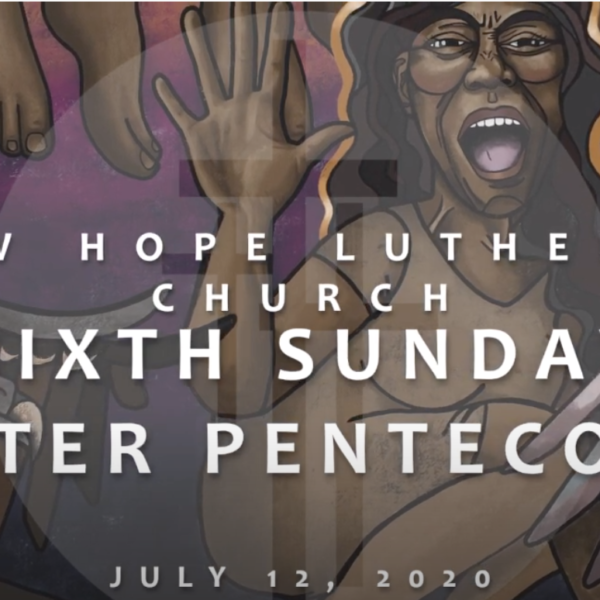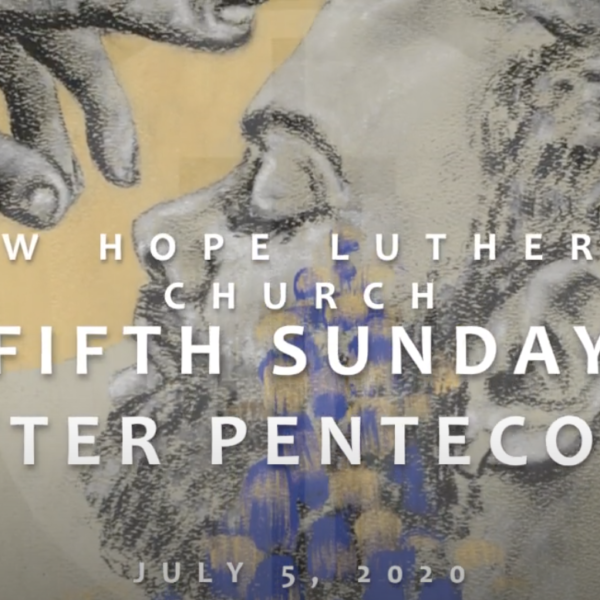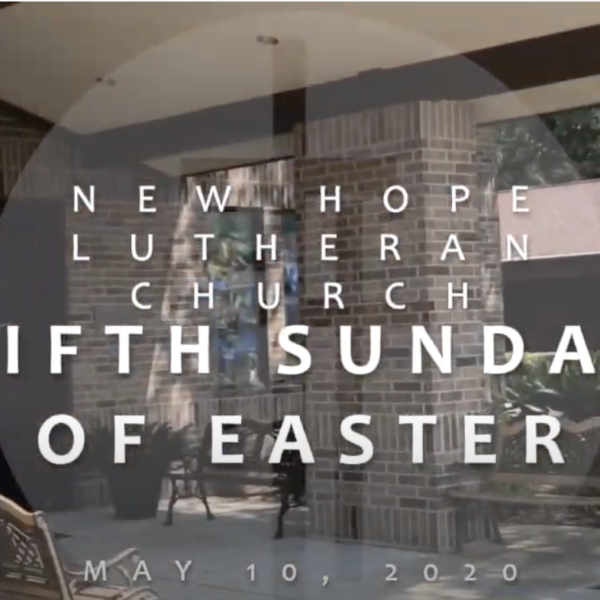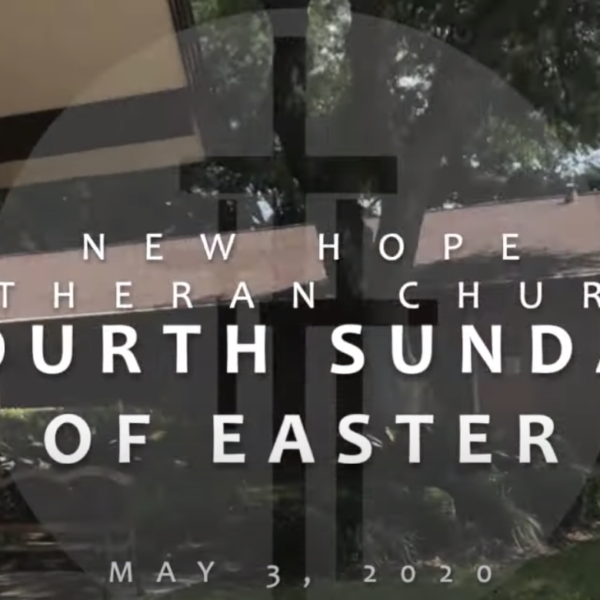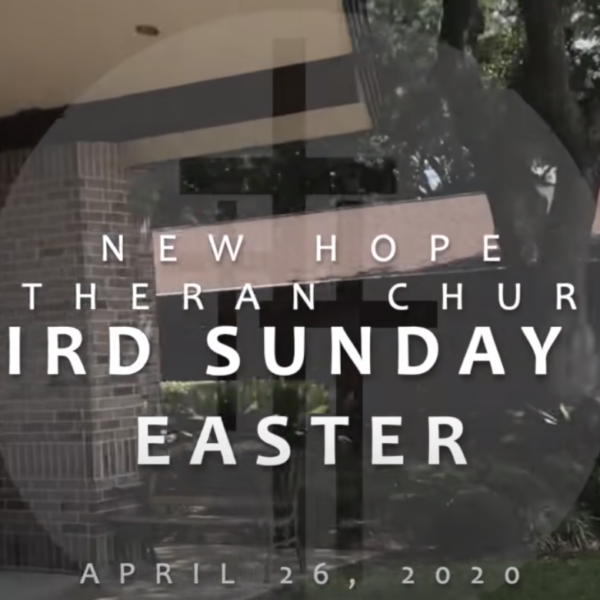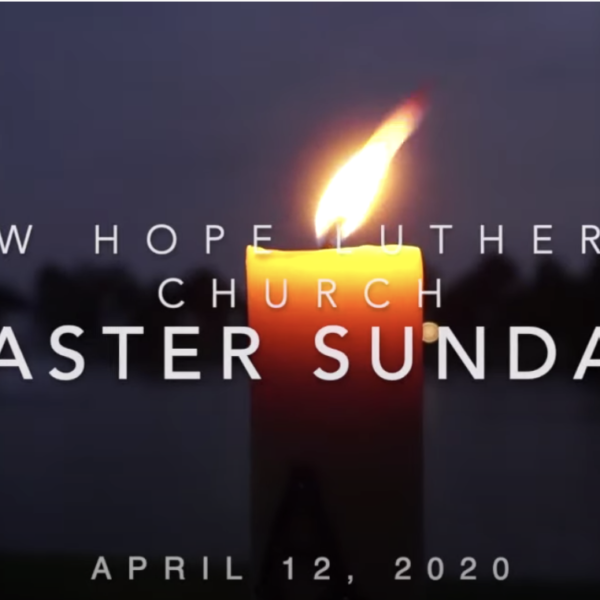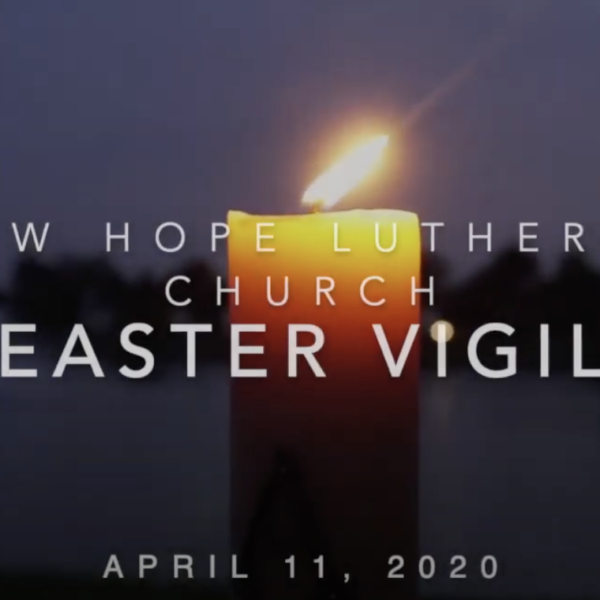Tenth Sunday after Pentecost 2020
Matthew 14:22-33
22 Jesus made the disciples get into the boat and go on ahead to the other side of the Sea of Galilee, while he dismissed the crowds. 23 And after Jesus had dismissed the crowds, he went up the mountain by himself to pray. When evening came, he was there alone, 24 but by this time the boat, battered by the waves, was far from the land, for the wind was against them. 25 And early in the morning Jesus came walking toward them on the sea. 26 But when the disciples saw Jesus walking on the sea, they were terrified, saying, “It is a ghost!” And they cried out in fear. 27 But immediately Jesus spoke to them and said, “Take heart, here I am; do not be afraid.”
28 Peter answered him, “Lord, if it is you, command me to come to you on the water.” 29 Jesus said, “Come.” So Peter got out of the boat, started walking on the water, and came toward Jesus.
30 But when Peter noticed the strong wind, he became frightened, and beginning to sink, he cried out, “Lord, save me!” 31 Jesus immediately reached out his hand and caught him, saying to him, “You of little faith, why did you doubt?” 32 When they got into the boat, the wind ceased. 33 And those in the boat worshiped Jesus, saying, “Truly you are the Son of God.”
—————
Please pray with me this morning, church:
Healing God,
When storms rage and our doubts rise up,
Reach out and save us.
Call our names
And remind us we are yours.
Amen.
—————
At camp, every week, they would host a ruthless battle of grit, fortitude, grace, and nerves. This epic show of strength happened across the country, I’m sure, but for me, it happened at both church and Confirmation camp and at Boy Scout Summer Camp.
I have to say, the fierce competition was a bit more palatable at our church camp, Briarwood, in North Texas, than it was at Scout Summer Camp in a more northern clime, but it was tough nonetheless. And I, not because I have a single competitive bone in my body, but because I have a penchant for being goofy and certainly when I was younger, I’d do almost anything to draw attention to myself, I’d always sign up for this contest of sheer will and courage.
I’m talking about, of course, the Polar Bear Plunge…or the Polar Plunge, as you might know it.
The idea is really quite simple. Everyone wakes up ungodly early, before the sun; dresses for this fierce battle in their swimsuits; gathers around the pool or pond or lake; and jumps in the chilly water after it has cooled overnight and the sun hasn’t had a chance to warm it.
There aren’t really winners, per se, in this competition, unless you count the ones with more brain cells, smartly remaining dry around the perimeter of the body of water, laughing hysterically at those of us stupid enough to think that this was in any way, shape, or form a good idea.
Chicago has it’s own Polar Bear Plunge, by the way. I’m not sure at what point in my years I started developing more brain cells, but in our 4 years there, I never did take Chicago up on her offer to go running out into Lake Michigan pre-dawn on a morning at the beginning of March.
It was probably when I watched them preparing the spot for the Plunge on North Avenue Beach by driving an excavator out on the beach…to break up the ice along the shore.
Yeah…that was probably the moment I decided I didn’t really need to sign up for Chicago’s Plunge…
We have a tendency…a smart one…mostly…I think…to carefully assess the risk before engaging in any given activity.
Sure, I could run out into an iced-over Lake Michigan in my swimsuit, but why do that when I can watch others do it on my TV from my 75° apartment?
Sure, I could jump out of this airplane with this piece of nylon strapped to my back, but why do that when this ground I’m standing on feels so firm and steady?
Sure, I could speak up and say something when I see harassment or bullying happening…but why insert myself or get involved in something that doesn’t directly concern me…?
Right? Right…?
(I did say it’s mostly a smart tendency…not always… There are many good reasons to speak up when you see harassment or bullying happening…and I think we would all do well to muster up a bit more courage when we do see it.)
A well-known quote, with which I bet a good number of you are familiar, from author and professor John Augustus Shedd, notes that “A ship in harbor is safe…but that is not what ships are built for.”
The thing is, we are mostly safe on the shore, or in the boat, or in the basket, in Moses’ case, but that isn’t always where we’re called to stay.
Moses’ basket was his safety, but it’s in being given up that his life was saved and he would then grow up to be the great liberator of God’s people. Had Moses’ mother not set her child adrift, he would certainly have been murdered under Pharaoh’s orders. And it’s Moses that would learn to stand up to Pharoah and lead God’s people out of slavery and oppression and into God’s new vision of freedom and abundance.
Jesus calls Peter out of the boat. Now, it’s worth noting that Peter asks for it, right? “Lord, if it is you, command me to come to you on the water.” But still, Jesus obliges. Jesus beckons Peter out of the boat, into the waves.
We’re told not to make waves, not to rock the boat…but when has change happened without a little waving and rocking?
The connection statement between our reading from Exodus and Moses’ story to our Unraveled theme is When our plans for our children unravel.
Certainly, Moses’ mother could not have imagined that she’d set her son adrift in the river. But neither could she have imagined that he’d be rescued and taken in by Pharoah’s daughter. Or that her own daughter, Miriam, would find a way to reunite mother and son, at least for a time, by orchestrating that Moses’ mother would be his caretaker for Pharoah’s daughter. She certainly could not have imagined that her boy would grow up to be the great liberator of God’s people from the yoke of slavery in Egypt.
Or maybe she could have imagined…
After a year of being constantly surprised, I’m learning how to not underestimate my son, Oliver. He will always prove me wrong.
I am also learning that no imagination is too big when it comes to the dreams we have for our young ones. I deeply hope they learn from us that they truly can do and be anything. And I hope we truly learn that ourselves about our young people. I hope we learn to trust that ourselves.
When I think of our young people starting a school year in just over a week…my honest reaction is one of trepidation. I’ve been praying constantly for our young people, and you, their parents, and our educators and administrators… This is a tough nut, y’all. And there aren’t many good answers at all.
By the way, if you’ve been praying about ways that you can help out and serve our community during this time, see the latest announcement in our Thursday afternoon eBlast for how you can help out at Armstrong Elementary. It isn’t for everyone, but it’s an opportunity if you’re available and interested.
There aren’t good answers, but I really do think most of us are doing the best we can. And so I also think about what our young people are learning during this time. This generation is going to be the most resilient group of people our world has ever seen. They’re learning adaptation, and problem-solving, and flexibility…they’re going to blow us away.
Young people now are seeing their parents get energized around an issue…whether it’s racial justice, or senior care, or healthcare accessibility…some of our Gen Z and younger are learning how to be activists…and they’re really good at it. I’m being challenged in ways I’ve never thought about by folks younger than me.
Some young people are learning new technology at a ridiculous pace. Rarely does a Sunday go by that our screen-sharing during our intergenerational faith formation time doesn’t get a few annotated comments from our young people.
It can be risky to step out of the boat…but church, remember who calls you out in the first place. The storms are raging all around us, but still, in the midst of all that tumult, Jesus is there.
And not only is Jesus there in the midst of the wind and the waves…but when we falter…and we will falter, church…we will find our faith shaken and we’ll quickly start to question whether or not this was truly a good idea…when we falter…Jesus will be the one reaching out to save us.
This life is a risky business.
It isn’t for the faint of heart.
But we do not do it alone.
“A ship in harbor is safe…but that is not what ships are built for.”
Dare to risk.
Make waves. Rock the boat.
Wade into the waves sometime…
The water’s…mostly…fine…

